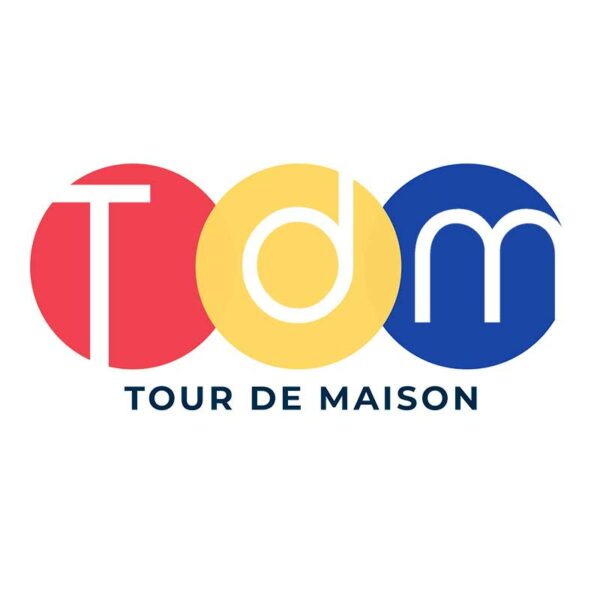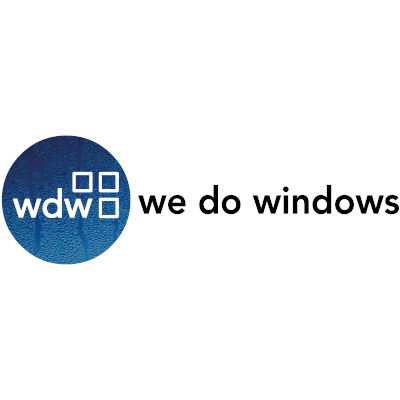The UK Business Coaching Sector: Overview
Business coaching in the UK has moved from being a niche luxury into a mainstream support mechanism for organisations of all sizes. Whether for leadership

development, strategic planning, performance improvement, or scaling up, coaches are in demand. Some of the key features:
- Growth in number of coaches: More people are working as coaches full-time, or using it as a major part of their professional services. Coaching is becoming more professionalised. (Activity Alliance)
- Rise in paying clients: The proportion of coaches who are paid for their services has increased. Coaching as a primary occupation is becoming more viable. (Activity Alliance)
- Diverse niches & specialisation: Rather than general coaching, more coaches are specialising — for example executive coaching, leadership coaching, smaller scale business / SME coaching, digital transition, or change management. (coachhub.com)
- Greater use of virtual, hybrid models: The pandemic accelerated remote working and remote learning. Coaching has followed suit. Hybrid and virtual coaching sessions are more common now. (barefootcoaching.co.uk)
Key Statistics & Trends
Here are some data points that help illuminate the sector’s size, growth, and seat at the table:
- In 2023-24, around 890,500 new businesses were registered in the UK — up more than 11% from the prior year. That rising tide of new enterprises creates demand for business coaching. (robinwaite.com)
- Within property and business services (which includes professional coaching), growth has been strong. Many small and medium enterprises (SMEs) are driving this. (robinwaite.com)
- Profit margins vary, but coaching within these sectors has produced median returns that are competitive (though often modest when accounting for overheads, marketing, time etc.). In some reports, the median profits in professional coaching are higher than in many other SME sectors. (robinwaite.com)
- Accredited coaching is becoming the norm: more clients expect credentials; coaches see membership in professional bodies rising; accreditation is a key differentiator. (Academy of Executive Coaching)
Drivers of Demand
What’s pushing companies, entrepreneurs, and individuals to seek business coaching?
- Economic uncertainty & competitive pressure
When markets are volatile (inflation, energy costs, supply chain issues, etc.), business coaching helps leaders navigate those uncertainties, adapt strategic plans, and maintain growth. - Need for leadership & change management skills
Organisations undergoing transformation (digitalisation, restructuring, hybrid working) need leaders equipped to manage people, change culture, and maintain morale. Coaching helps bridge the gap. - Productivity & performance gaps
For many SMEs especially, there are gaps in management skills, strategic planning, operational efficiency. Coaching can help close these gaps — improving decision making, setting clearer goals, raising accountability. - Desire for bespoke & high-impact guidance
Unlike generalized consultancy or training, coaching offers more personalised, ongoing support. That appeals to business leaders who want one-to-one or small group interactions focused on their specific challenges. - Technology enabling remote/hybrid coaching
Because coaches can now work remotely (via video, hybrid formats, digital tools), access has broadened — both for coach and client. It reduces travel time and cost, allows more flexible scheduling. - Recognition of ROI
Studies often show that businesses see returns from coaching: improvements in performance, leadership capacity, staff engagement, sometimes bottom-line financials. While measuring ROI precisely is not always trivial, growing evidence supports the value. (LLCBuddy)
Challenges & Risks
Not all is smooth sailing. There are significant challenges, both for coaches and clients, to ensure the sector continues to grow in a healthy, trustworthy way.
- Variable quality & credibility
Because “coach” is not a protected title in many cases, there are many practitioners without formal training, accreditation, or clear methodologies. This variation can lead to poor experiences, overpromises, and reputational risk. - Cost / affordability
For small businesses, start-ups, or sole traders, the fees for business coaching can be prohibitive. This limits demand to those who can afford it, or who see a strong enough return to justify the investment. - Lack of standard regulation
While professional bodies (EMCC, ICF, etc.) provide frameworks and accreditation, there’s no uniform regulation. Clients need to do due diligence. - Saturation & competition
As more people become coaches, competition is increasing. Differentiation (specialisms, niches, proven outcomes) becomes more critical. - Measuring impact
It can be hard to quantify the outcomes of coaching, especially in financial terms. Some improvements are behavioural, cultural, long-term. That makes it harder to set expectations, benchmark, or prove ROI in a way that satisfies every stakeholder. - Technology / digital fatigue
While remote coaching offers many advantages, there’s risk of digital fatigue, weaker interpersonal connection, and possibly lower engagement. Hybrid formats may help, but require thoughtful design.
What Clients / Businesses Look for
Given the challenges, what do clients in the UK tend to look for when selecting a coach or coaching programme?
- Proven track record & case studies: Evidence that the coach has helped others in similar contexts.
- Accreditation / credentials: Membership in EMCC, ICF, or recognised UK coaching bodies.
- Specialisation: A coach with deep expertise in the client’s domain (e.g. manufacturing, tech scale up, leadership, digital transformation).
- Clarity of outcomes: Setting measurable goals from the outset. What improvement is expected? What will success look like?
- Flexible delivery models: In-person, virtual, hybrid. Flexibility in scheduling, format, exploring blended approaches.
- Cost transparency and packages: Clear pricing, understanding of what is included (number of sessions, support materials, follow-ups).
Market Ecosystem & Supporting Structures
Some of the infrastructure and institutions around business coaching in the UK that help shape the sector:
- Professional bodies & accreditation
Organisations like the European Mentoring & Coaching Council (EMCC) provide certifications, codes of ethics, competency frameworks. These bodies help raise standards. (Wikipedia) - Directories / coach listings
Tools that allow clients to find coaches, compare by speciality, credentials, geography or delivery style. For example, a business coach directory can be an invaluable resource for matching. One such resource is the business coach directory which aggregates coach profiles and helps with discovery. - Training & continuous professional development
Coaching isn’t static. Good coaches invest in training, learning new methodologies, staying current with behavioural science, digital tools, or even AI augmentation. - Government & institutional programmes
Some government-backed schemes – for example, SME productivity programmes, help-to-grow-type initiatives – incorporate coaching, mentoring or training as part of their offer. These help spread coaching beyond big companies into smaller ones.
Future Directions & Emerging Trends
What’s next? What trends are likely to shape the coaching sector in the UK in coming years?
- Increased use of technology & AI augmentation
Coaches are beginning to use generative AI and tools to supplement their offerings. Not replacing human coaching but enhancing preparation, content creation, administration, data tracking. Ethical issues (privacy, transparency) will become more important. (arXiv) - Hybrid & flexible formats
More programs will mix in-person with remote/hybrid delivery to balance connection and convenience. - Specialisation & niche focus growing
The coaches who succeed will likely be those who deeply understand specific sectors (e.g. tech-startups, creative industries, manufacturing, or family businesses) or certain kinds of challenges (scaling, digital transformation, sustainability). - Focus on outcomes, metrics & evidence
Clients are demanding not just anecdotes, but measurable results. More coaches will need to adopt data-driven approaches, collect metrics, build case studies, even contribute to research. - Greater accessibility / democratization
There is potential for coaching to become more accessible to smaller businesses and individuals via shorter programmes, group coaching, peer-coaching networks, lower-cost digital formats. - Ethical standards and regulation pressures
As the industry grows, there will likely be more pressure for formal regulation or standards. This could include clearer accreditation, baseline minimum ethical rules, and perhaps consumer protection where claims are made. - Integration with mental health, wellbeing, and holistic leadership
Increasingly, business coaching won’t just be about profit or strategy, but about holistic leadership — balancing performance with wellbeing, resilience, emotional intelligence, and sustainable working. - Global & cross-border coaching
With remote delivery, UK coaches may work more with international clients, and conversely clients in the UK may access coaches abroad. That brings both opportunity and complexity (cultural, legal, pricing).
Implications for Stakeholders
Here are what different groups should consider:
- For coaches: Invest in credentials, define specialisms, build measurable case studies, embrace technology (without losing human connection), and be transparent about what clients can expect.
- For clients (businesses, entrepreneurs): Do your homework — check credentials, get referrals, define outcomes, understand the costs, and negotiate support structures and follow-ups. Consider what format works best (remote vs in-person).
- For industry bodies: Continue raising standards, defining best practices, possibly pushing for clearer regulation. Also invest in spreading awareness of the value of coaching beyond elite or large organisations.
- For policymakers: Coaching can contribute to productivity, workforce development, leadership capacity. Supporting accessible coaching or mentoring programmes (especially for SMEs) can be an effective policy lever. Ensuring consumer protection and quality assurance in the sector is important.
Concluding Thoughts
The business coaching sector in the UK is strong, growing, and evolving quickly. It is moving from being an optional luxury to a strategic investment. But with that growth comes responsibility: for coaches to maintain quality, for clients to make informed choices, and for all involved to ensure ethics, results, and value are front and centre.
If done well, business coaching offers a lever for innovation, leadership development, improved performance and resilience — all critical in the fast-changing economic climate the UK (and globally) faces now.



















































